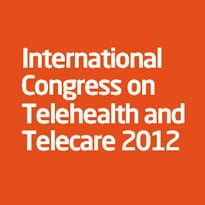DH ‘must publish’ WSD results
- 27 February 2012

The Department of Health needs to publish the full results of the whole system demonstrator projects to avoid expensive mistakes in the roll-out of its 3millionlives campaign.
Professor Nick Goodwin, a senior fellow at the King’s Fund think-tank, told eHealth Insider: “We need to know what the whole system demonstrators really show, not just what the DH press release says they show.”
Otherwise, he warned that although the telehealth industry was “very excited” by the campaign to develop the market over the next five years, local health communities could be left without the information they needed to deploy new services cost-effectively.
He further warned that this could lead to other health communities “doing a Yorkshire” – or buying devices that they then struggled to roll-out or use to deliver projected savings.
“While I am very supportive of telehealth and telecare in general, it is clear that the early findings [of the WSD programme, as published by the DH] were there to support [Prime Minister David] Cameron and the industry in launching 3million lives,” Professor Goodwin said.
“These are good things. But as a scientist, I want to know if [the evidence] is really there.”
The DH set up three WSD projects in June 2009. They were billed as two-year, randomised control trials that would provide “robust evidence” that telecare and telehealth could improve the lives of patients, carers, and health and social care professionals, and deliver “more cost effective ways of managing long-term conditions.”
Early results from the WSD programme were published at the start of last year. But the full evaluation failed to materialise.
Instead, in December, the DH issued a further ‘early findings’ press release with one paragraph stating that the “correct use” of telehealth could deliver a 15% reduction in A&E visits, a 20% reduction in elective admissions, a 14% reduction in bed days and an 8% reduction in tariff costs.
On the back of this, and in support of post-Budget moves to promote growth by boosting the life sciences industry, Cameron announced the 3millionlives campaign.
This is now being forward through a ‘concordat’ between the DH, Intellect and other industry bodies.
However, in January eHealth Insider reported that the biggest telehealth pilot outside the WSD problem had run into significant problems.
NHS North Yorkshire and York admitted that plans for Tunstall to install 1,500 telehealth units by the end of 2010-11 had not been met, and that by June 2011 only 350 of the total 2,000 units it had bought had been deployed.
As a result, the primary care trust was incurring significant storage charges and had failed to realise the savings expected; although Tunstall insisted the project was “on trajectory.”
The King’s Fund is running a three-day, international telehealth congress next week, at which a number of sessions will be devoted to the WSD programme.
Professor Goodwin told EHI that he hoped these would answer three questions. “The really big question for me is to what extent the real results correspond to what has been reported by the DH,” he said.
“I am also really keen to see how the patient and carer experience has been reported. And the third question is the really big ticket item: ‘was it worth the money?’”
He also said that without more results from the WSD programme, 3millionlives “could go wrong.”
“We really need to understand local implementation,” he said. “The telehealth industry is very excited about 3millionlives, but the evidence-base remains difficult to see.
"We really need to understand local implementation. Otherwise, other areas could ‘do a Yorkshire’, which looks like a classic case of problems arising not from the technology, but the way it has been deployed.”
He added that all the evidence that was available to date, including from the King’s Fund’s own involvement in the WSD programme, suggested that “a lot of strategic planning” was needed ahead of telehealth projects.
Professor Goodwin also said that the technology should simply be seen as a “tool” for support new ways of working.
The King’s Fund is hosting a three day, International Congress on Telehealth and Telecare, at its central London offices from 6-8 March.
The programme will include a seminar on evaluating telehealth and telecare projects, examples of innovations from around the world, and sessions from DH speakers on the WSD programme.




